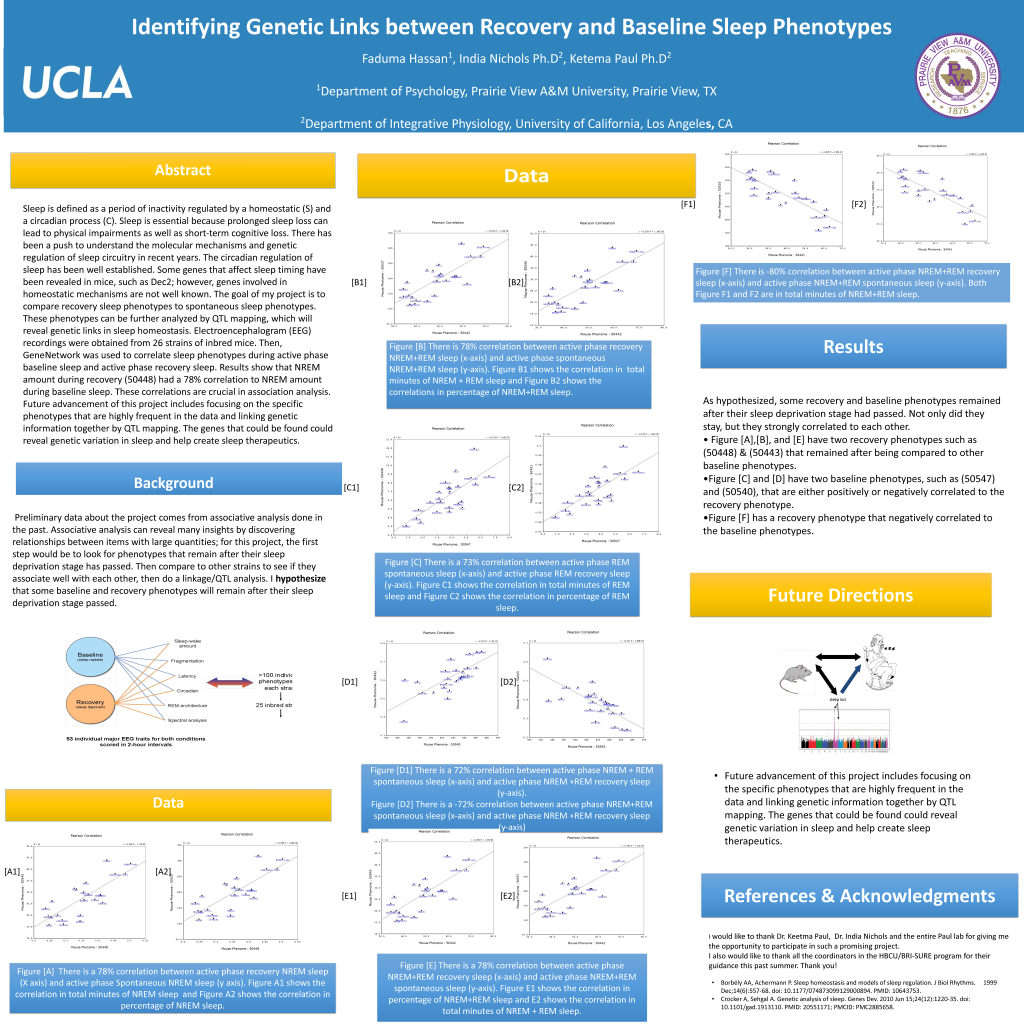
Faduma Hassan
Abstract:
Sleep is defined as a period of inactivity regulated by a homeostatic (S) and a circadian process (C). Sleep is essential because prolonged sleep loss can lead to physical impairments as well as short-term cognitive loss. There has been a push to understand the molecular mechanisms and genetic regulation of sleep circuitry in recent years. The circadian regulation of sleep has been well established. Some genes that affect sleep timing have been revealed in mice, such as Dec2; however, genes involved in homeostatic mechanisms are not well known. The goal of my project is to compare sleep phenotype between recovery and baseline sleep. These phenotypes can be further analyzed by QTL mapping, which will reveal genetic links to sleep homeostasis. Electroencephalogram (EEG) recordings were obtained from 26 strains of inbred mice. Then, GeneNetwork was used to correlate sleep phenotypes during active phase baseline and active phase recovery sleep. Using the Pearson correlation test, both recovery and baseline phenotypes revealed high association amounts to one another. Results show that only five out of the twenty tested baseline and recovery phenotypes remained constant after their sleep deprivation stage had passed. Ex; A NREM recovery phenotype(50448) correlated well to two other baseline phenotypes. These correlations are crucial in association analysis. Future advancement of this project includes focusing on the specific phenotypes that are highly frequent in the data and linking genetic information together by QTL mapping. The genes that could be found could reveal genetic variation in sleep and help create sleep therapeutics.

